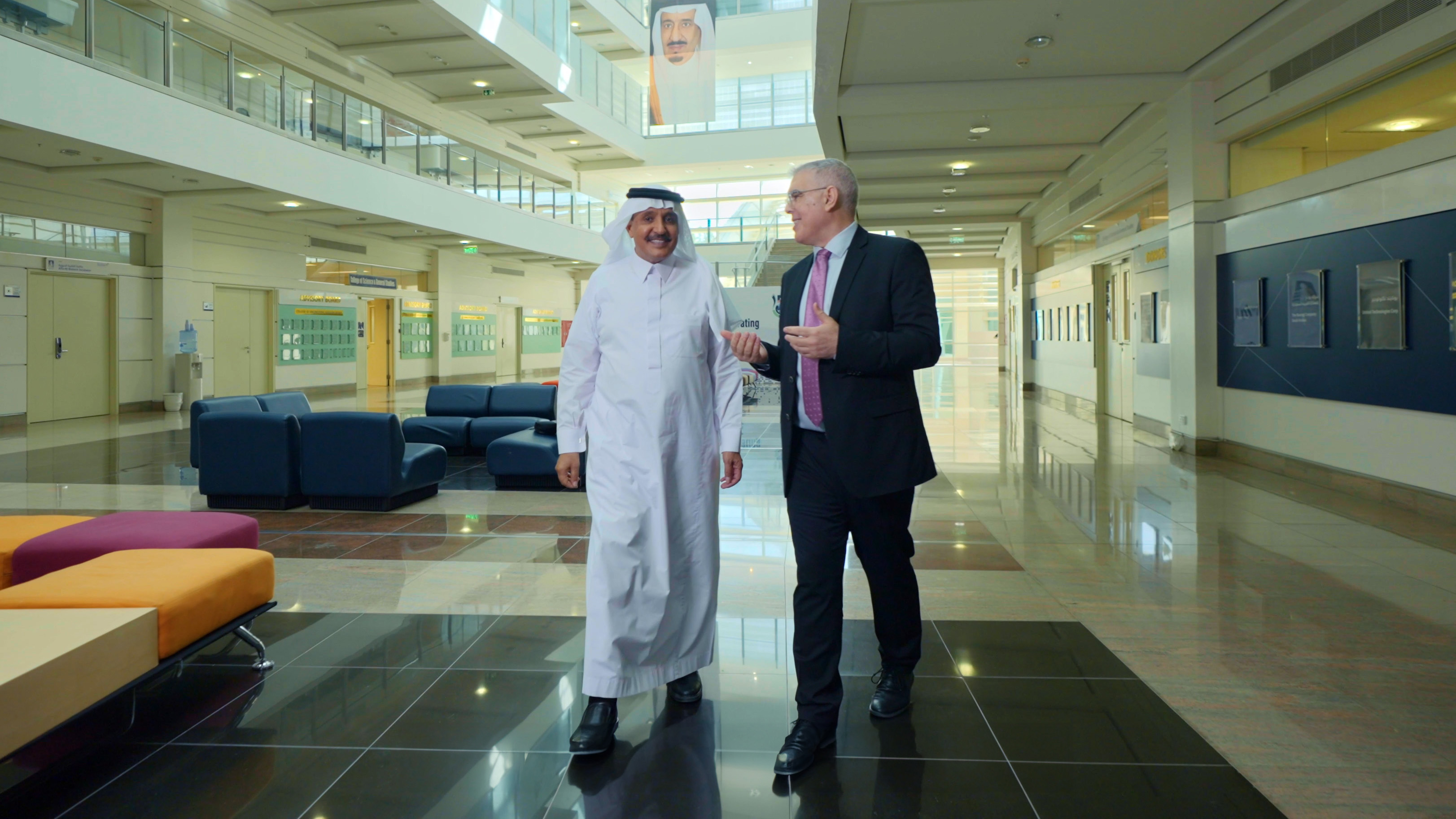Collaborations on smart health deliver benefits for Saudi Arabia

World class health research is important, but it only has real impact when it is shows to be effective and used. One route to this is through training in a clinical setting that can help skill up doctors of the future and foster uptake of innovative health tools.
Now, collaborations with the Kingdom’s medical centers as well as a new training program with Alfaisal University aim to provide a bridge from KAUST’s basic scientific research to clinical practice, says chief operation officer and associate director of the KAUST Smart-Health Initiative, Imed Gallouzi.
“Our other key objective is to extend the use of smart and digital tools to the Saudi healthcare system to improve our understanding of disease mechanisms for better diagnosis, treatment and prevention,” says Gallouzi.
Health and wellness is one of the Kingdom’s national research priorities, and a cornerstone of KSA’s Vision 2030 strategy is to expand the provision of e-health services and digital solutions as well as improving the quality of health services.
Saudi Arabia already boasts a high-quality healthcare system with a comprehensive network of modern medical facilities, highly experienced and expertly trained physicians, and, more recently, state-of-the-art clinical research centers associated with top hospitals.
Gallouzi says that these research centers have established a foundation for integrating the next generation of smart health and precision medicine technologies into the Kingdom’s healthcare system. Yet, progress on implementing these smart health and precision medicine tools has been slow and limited in scope.
“In five to 10 years, I hope to find myself in a place where people are trained to use smart technologies like AI to solve clinical problems. We see ourselves as a catalyst that will help the country transition from traditional medicine to precision and personalized medicine,” he says.
“To meet future demands on the healthcare system and realize the Health Sector Transformation Program planned as part of Vision 2030, Saudi Arabia will need to find and integrate novel approaches to addressing the healthcare needs of the population,” he says.

One of the primary activities of the KAUST Smart-Health Initiative is to establish national and international partnerships to develop research, education, and training programs that support the expansion of evidence-based healthcare technologies and provide training to the next generation of Saudi medical practitioners and scientists.
KAUST has partnered with Alfaisal University to establish the Kingdom’s first M.D./Ph.D. program, which accepted its first group of students in 2022.
The objective of the program is to offer advanced educational and research facilities to Saudi and other medical students who want to build careers as physician scientists.
“These practitioners will lead the transformation of Saudi Arabia’s healthcare system toward a precision medicine approach that utilizes smart-health technologies to their fullest potential,” says Gallouzi.
“In co-establishing the KAUST-Alfaisal M.D./Ph.D. program, the KAUST Smart-Health Initiative is directly impacting the education of future clinicians who will be at the forefront of Saudi Arabia’s healthcare transformation,” he says.
The program brings together KAUST’s expertise in digital and smart tools, such as AI and machine learning, with access to patient samples and data from Alfaisal University.
His Excellency Professor Mohammed Alhayaza, president of Alfaisal University, says the program will train doctors of the future to integrate AI in their work.
“That’s really a gap that exists worldwide and the way to address it is to create curriculums that train the next generation of scientists and clinicians to use smart and digital tools to innovate in the sector of precision and personalized medicine,” he says.
“Doctors of the future will have a significantly different and crucial role compared to today’s practitioners. They will be able to prescribe personalized treatments as well as screen to predict what diseases patients may develop in the future.”
The M.D.-Ph.D. partnership program is a doctoral program in healthcare specialties. Among its objectives is the qualification of professionals in precision medicine to serve the Kingdom and make progress in medical technology to confront these challenges and develop the healthcare sector in the future.
“Cooperating with KAUST has opened new horizons for graduates of Alfaisal University, and we hope that the outcomes of this program will have a positive impact at the national level,” Alhayaza concludes.

